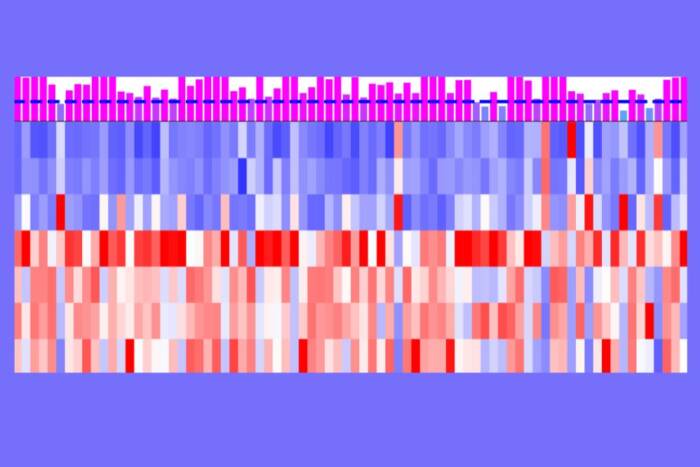Rockefeller Researchers Find Evidence That Weight Change in Humans Affects Metabolism
Results Hold Implications for Clinical Management of Obesity
A team of researchers at The Rockefeller University, led by Dr. Rudolph Leibel, has shown that the human body maintains a stable weight by increasing the number of calories burned when weight is gained, and slowing the rate when weight is lost. Dr. Jules Hirsch, Sherman M. Fairchild Professor and physician-in-chief of the Rockefeller University Hospital, and Dr. Michael Rosenbaum are co-authors of the study, to be published tomorrow in The New England Journal of Medicine.
“These results provide additional evidence that obesity is a biological disorder,” said Dr. Leibel, who heads Rockefeller’s Laboratory of Human Behavior and Metabolism with Dr. Hirsch. “These findings should provide reassurance to the obese that their problem is organic, and that further research should be able to define much more effective means for producing and maintaining long-term weight reduction.”
The investigators studied 41 women and men at the Rockefeller Hospital, a component of the National Institutes of Health’s New York Obesity Research Center. The Hospital’s unique facilities allowed the investigators to control the volunteers’ environment for an extended period of time while they examined how the individuals’ biology worked. In the clinical research unit, dietitians prepared a liquid diet that was calibrated to precisely stabilize the volunteers’ weight after a gain or loss of at least 10 percent of their total body weight. Food intake and exercise were precisely controlled, and the scientists monitored the change in the rate of metabolism by measuring the total number of calories burned before and after the change in weight. Of the volunteers, 18 were obese and 23 had never been obese.
The researchers found that total energy expenditure, which includes calories burned both at rest and through physical activity, naturally adjusted itself to compensate for weight change. This effect occurred regardless of the volunteer’s sex, age, ethnic background or whether or not obesity was present initially. The adjustment in energy expenditure was found even after the new weight had been stable for up to 16 weeks. Most of the change was observed in nonresting energy expenditure–energy spent through physical activity or by skeletal muscle–the only part of metabolism that a person can control directly. The authors believe that the efficiency of muscle contraction may change as weight varies. These findings may account, in part, for the poor long-term success of treatments for obesity.
“Our data indicate that the maintenance of reduced body weight is not impossible,” said Dr. Leibel, “only that the formerly obese will require indefinite adherence to regimens of reduced calorie intake and–ideally–increased physical activity.”
“This research taps into the fundamental control of fat storage in humans,” said Dr. Hirsch. “It clearly shows that decreasing food intake or increasing energy output for a short period is not going to control weight. Good nutrition and increased physical activity–over the long term–are necessary to lose weight and keep it off.”
Most people gain only 10 or 20 pounds over the 30-year period stretching from their mid-20s to mid-50s. Obesity researchers have long believed that body weight is maintained at a stable level over the course of a lifetime through a “set point,” which might provide a fixed reference to which some aspect of body weight or composition, such as body fat, would be compared on an ongoing basis. The feedback mechanism for the effect of fat mass on energy metabolism is unknown, but studies of fat cells over the past 30 years by Dr. Hirsch and his colleagues at the Rockefeller Hospital have strongly indicated the role of adipose tissue in set-point control. A candidate gene in the system was cloned in mice last fall by Dr. Jeffrey Friedman and his colleagues in the Laboratory of Molecular Genetics at the Howard Hughes Medical Institute at Rockefeller University. This gene, ob (for obesity), codes for a protein secreted by adipose tissue.
This work was funded in part by the National Institute for Diabetes and Digestive and Kidney Diseases and the National Center for Research Resources of the NIH and the Weight Watchers Foundation. During part of the study period, Dr. Rosenbaum was an Amparo Rugarcia Clinical Scholar, and Dr. Leibel was an Established Investigator of the American Heart Association.


